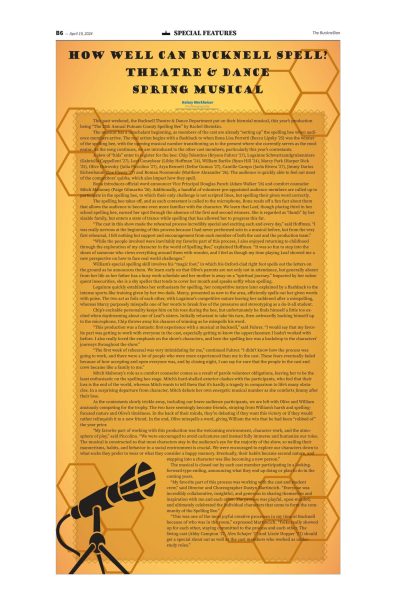Counseling and Student Development Center introduce innovative stress identifier
February 21, 2019
The University Counseling and Student Development Center has introduced a new simulation through the company Kognito to help identify distressed students. More than a million people have participated in a Kognito simulation, including more than 900 University students and student-athletes, according to Maria Shafran, the Associate Director of the Counseling and Student Development Center. In addition, Shafran explained that they are currently training faculty and staff to equip them with the skills to identify extreme stress. “We are hoping to offer it to the entire campus community,” Shafran said.
Kognito is a company that uses simulations to educate people about health issues and impact how they think and act, and hopefully change lives. Their main mission is to use communication to inspire and inform people. Their core values are innovation, creativity, integrity, stewardship, and focus on the consumer.
The company provides educational simulations on a range of topics, including mental health, substance use, chronic disease, family relations, medication adherence, and patient-provider educations. Kognito prides itself in customizing its clients’ simulations to their specific individual needs.
The simulations that the University is using integrate evidence-based models, game mechanics, and learning principles to provide the best and most impactful experience for clients. Participants enter the simulation and take part in role-play conversations with emotionally responsive virtual people. This experience allows students and faculty to use these conversation skills in real-life situations.
The simulations work to improve specific skills, including motivational interviewing, shared decision-making, emotional self-regulation, empathy and empathic accuracy, and reappraisal strategy. The simulation uses hands-on practice, contextual learning, storytelling, case-based approaches, and personalized feedback to help participants get the most out of their experience.
The specific simulation that the University has started using is the “At-Risk for College and University” simulations. These include both simulations designed specifically for students and one for faculty and staff. This simulation aims to educate participants about mental health and suicide prevention. It also supports an improvement in academic performance, student retention, and campus safety.
The student-focused simulation seeks to prepare students for real-life conversations with fellow students in distress, particularly how to identify them, how to support them, and how to help them find resources available on campus. Shafran stated that an interesting thing about Kognito is that it is customized to the University. This means that after the program is completed, it can give students, faculty, and staff “specific information about the services we offer and how to reach out to us.”


























